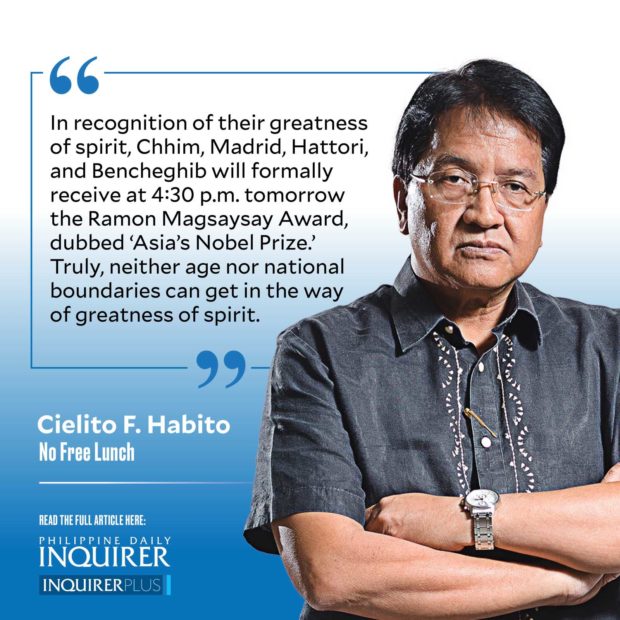Great spirits, noble deeds
The Cambodian people were traumatized by the genocidal Khmer Rouge regime in 1975-1979 that killed nearly a quarter of the country’s then 7.8 million population. Cambodian psychiatrist Dr. Sotheara Chhim knew that the mental condition afflicting a large number of his people was something beyond post-traumatic stress disorder as well-known in the Western world, and requires a distinct kind of intervention. He describes many of those who underwent and survived that ordeal as people whose “souls had left their bodies,” with an affliction locally known as baksbat (“broken courage”), marked by passivity, fear, and avoidance.
More than four decades after the genocide, an estimated 40 percent of Cambodians remain deeply scarred by it, and survivors have passed on feelings of worthlessness to their children. The COVID-19 pandemic made things worse, and led to an alarming rise in suicide, depression, and anxiety, and household violence on women and children. It takes a victim to understand and truly help a fellow victim, and having suffered the Khmer Rouge brutality himself as a child, Dr. Chhim understands firsthand what his patients go through. Through the Transcultural Psychosocial Organization or TPO-Cambodia that he leads, he has helped thousands overcome the trauma.
Pediatrician Dr. Bernadette Madrid has headed the Child Protection Network Foundation, Inc. (CPN) since 1997, having started from the Child Protection Unit of the Philippine General Hospital (PGH)—the first child abuse clinic in the Philippines. Dedicated to combating child abuse, CPN was established in 2002 with the goal of having child protection units across the country, and played a crucial role in the establishment of now as many as 123 women and children protection units (WCPUs) nationwide. Led by Dr. Madrid, the PGH CPU has become a one-stop shop for abused children providing medical, legal, social, and mental health services. With close coordination across concerned government agencies, CPN and the WCPUs provide a holistic support system for abused children all over the country, and at the forefront of it all is Dr. Madrid.
For 20 years, a Japanese ophthalmologist has provided the gift of sight to more than 20,000 poor Vietnamese for free. Dr. Tadashi Hattori, considered a top expert in phaco- vitreous surgery in Japan, has devoted about half of his year in Vietnam, after witnessing a high incidence of blindness among poor rural folk in his first visit to the country in 2002. He has trained Vietnamese doctors in the latest sophisticated techniques in eye surgery, and has used his own resources and donations he actively solicits in Japan to bring sophisticated equipment for his Vietnamese patients. In 2014, Dr. Hattori founded the Japan International Eye Hospital, serving affluent patients in Hanoi, to generate income to sustain his philanthropic work in rural Vietnam. For two decades, he has shown that human compassion knows no boundaries.
Similarly, 27-year-old French national Gary Bencheghib has lived in Bali, Indonesia, for 13 years, championing a campaign against plastic pollution that has received national attention, including from President Joko Widodo himself. He founded Sungai Watch, an environmental organization with a mission to stop plastic from entering the ocean. It does this by installing trash barriers in the rivers, and operating a trash collection, sorting, and upcycling system that to date has collected 400,000 kilograms of plastic waste with over 100 trash barriers in Bali. Young Bencheghib has his sights beyond Bali, and hopes to have 1,000 trash barriers installed in Indonesia by 2023.
In recognition of their greatness of spirit, Chhim, Madrid, Hattori, and Bencheghib will formally receive at 4:30 p.m. tomorrow the Ramon Magsaysay Award, dubbed “Asia’s Nobel Prize.” Truly, neither age nor national boundaries can get in the way of greatness of spirit. (See it live at youtube.com/MagsaysayAward.)
cielito.habito@gmail.com





















